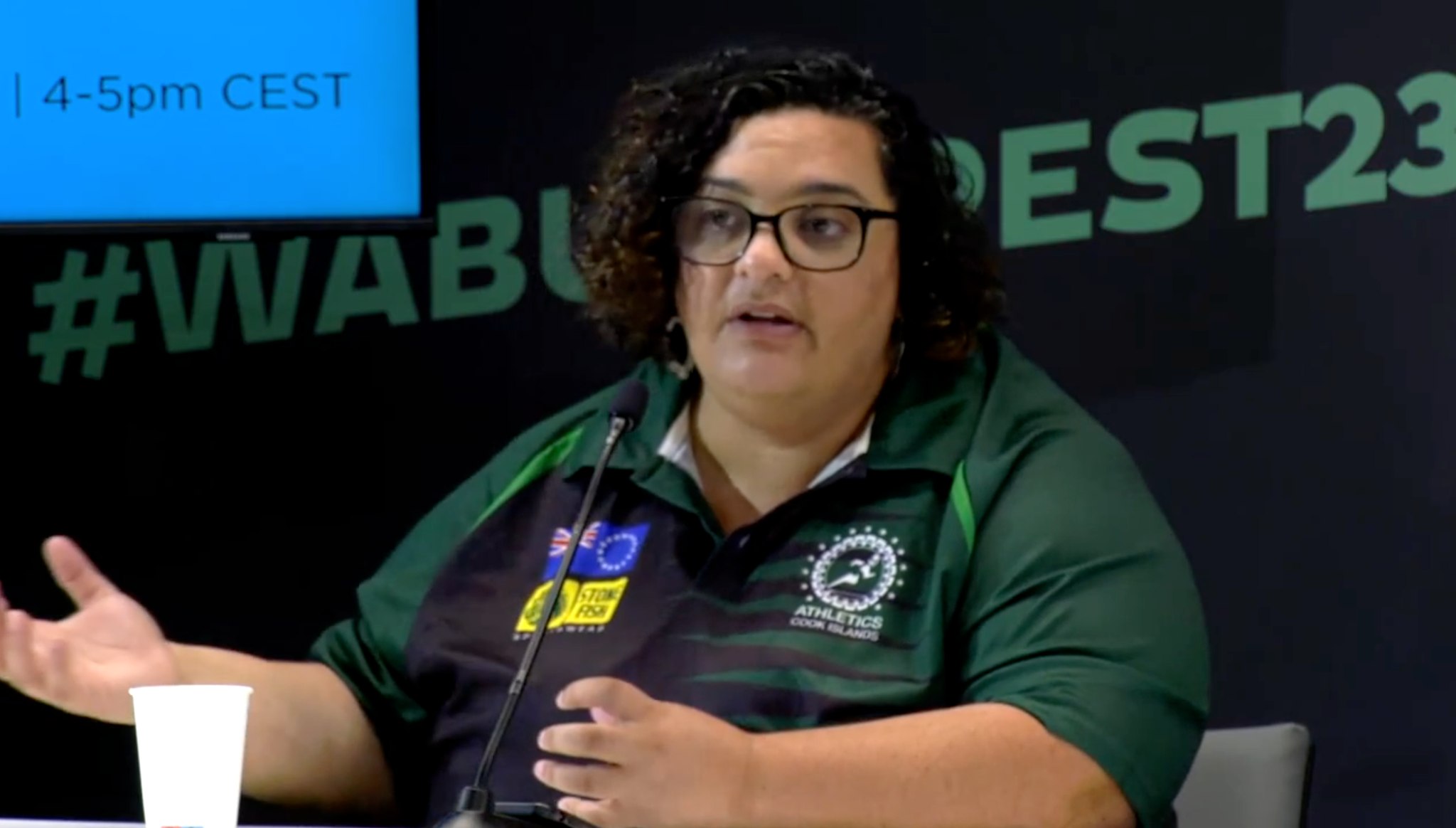Cooks among Oceanian athletics on climate change talks and sport
Wednesday 23 August 2023 | Written by Supplied | Published in Athletics, Sports

Athletics Cook Islands President Simone Fe'ao was part of a live panel discussion featuring athletics leaders from across Oceania to discuss the impacts of climate change on their communities, their countries and their sport. ATHLETICS COOK ISLANDS / 23082204
Athletics leaders from Oceania have expressed fears for the future of their islands here, and warned "we are actually talking two different languages" in search of continual improvement in competition while combatting climate change.
Athletics Cook Islands President Simone Fe'ao was part of the panel discussion with officials from Kiribati, Samoa, Tuvalu and Vanuatu entitled "Sport on the Climate Change Front Lines".
World Athletics head of sustainability Bob Ramsak chaired the panel discussion.
Athletics Cook Islands President Fe'ao said the Cook Islands Government has made specific a department – Climate Change that comes under the office of the Prime Minister.
“It is not under Environment, not under Infrastructure, its actually under the Office of the Prime Minister and I think that speaks to the importance of it, for our island and for our country and for our people, that it is not something that just impacts one area.
“We are talking about in the context maybe of sport and athletics but it goes across education, across infrastructure and environment.”
She said some of the specific measures that have come out of the climate change office is the commitment to renewable energy. She said the Cook Islands government made a commitment- this is a major one.
Also looking at food supply, Fe’ao talking about fishing said the government was also bringing the traditional methods and combining it with a new smart technology- educating fishermen on the changes of the weather and the ocean people on how to use the new technology.
Fe’ao said Sport is a big part of the community.
“We as athletics have the opportunity to be a positive ambassador in this area that is affecting our people.”
She said it was not about stopping climate change but doing what: “we can to slow climate change and adapt- so we have that resilience…we talk about in the Cook Islands limiting the ocean warming…”
She said it is going to take more than the 20 Oceania nations to make that difference for World Athletics and other sports as well.
World Athletics President Sebastian Coe acknowledged on Friday (August 18) before the start of the World Championships in Budapest that some of its members "probably will not be in existence in the next 20 years".
Coe admitted that climate change is likely to reschedule major athletics events, including endurance competitions potentially being moved to cooler times of the year.
Tuvalu Athletics Association vice-president Niuone Eliuta outlined the threat faced by his nation with the highest point only around four metres above sea level, while Athletics Cook Islands President Simone Fe'ao said seven of her country's 15 islands peaked at 15 metres above sea level or less.
Kiribati Athletics Association President Rusila Tekamotiata, Vanuatu Association of Sports and National Olympic Committee President Antoine Boudier and Samoa Athletics President Jerry Brunt explained the increasing impact of earthquakes, cyclones and flooding on their nations.
Climate change has created difficulties growing crops, changed fishing patterns and led to many young people in the countries migrating to Australia, New Zealand or further afield, the leaders shared.
It has also impacted the staging of sport in the limited facilities on the islands, leaving venues at risk of flooding.
Eliuta insisted "the future of humanity really depends on what we do today", while Fe'ao argued "it's going to take more than just the 20 Oceania nations to make that difference".
Boudier shared concerns about the failure of countries around the world to fulfil pledges on tackling climate change, but said sport needed to find a balance between the standard of its events and protecting the environment.














































